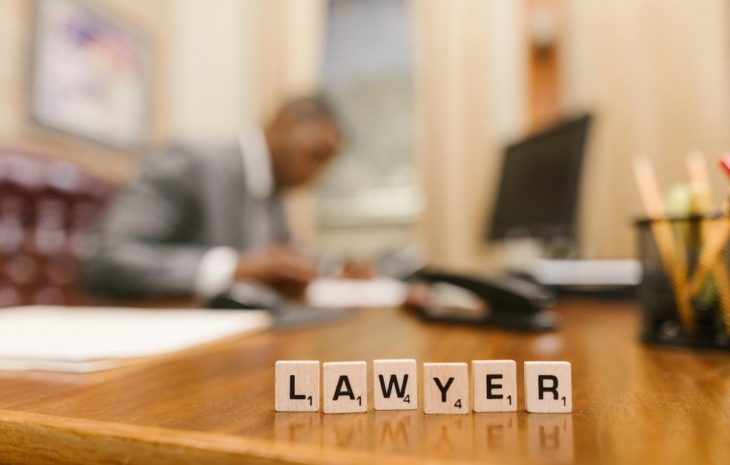4 Factors a Lawyer Will Consider Before Taking Your Domestic Violence Case

Facing a domestic violence accusation is incredibly stressful and confusing. You might feel isolated, afraid, and unsure of where to turn. The legal system can feel overwhelming, especially if you’re innocent. That’s why finding a lawyer who understands the emotional toll and complexities of these cases’ is crucial.
Whether your goal is to have the charges dismissed or to negotiate a fair plea agreement, having a lawyer with your best interests in mind is essential.
In this article, we’ll discuss the four main factors a lawyer will consider before taking your domestic violence case.
1. The Strength of the Evidence
The strength of the evidence is a major factor a lawyer considers before taking your domestic violence case. Just like building a house, a strong case needs a solid foundation. For your lawyer, that foundation is the evidence available. This can come in many forms:
- Witness statements: The lawyer will assess the witness’s relationship to both parties and any potential bias they may have.
- Medical records: These can document injuries and support your claims.
- Police reports: These detail the responding officer’s observations and initial findings.
- Photos or video recordings: These can be powerful evidence, but the lawyer must ensure they haven’t been tampered with.
Your lawyer will carefully review all the evidence and determine whether it’s sufficient to support your case. They’ll also assess any potential weaknesses or flaws in the evidence and devise a strategy to address them.
2. Your Legal History
Your legal history is another crucial factor a lawyer will examine before taking your domestic violence case. Prior convictions can have a significant impact, especially if they include previous domestic violence charges. A history of similar offenses may suggest a pattern of behavior, which can influence both the prosecution’s approach and the lawyer’s strategy.
If you have a clean record, the lawyer might focus on highlighting your generally law-abiding nature to bolster your defense. However, if you have prior convictions, the lawyer may need to work harder to demonstrate that this situation is different or that you’ve made efforts to change.
Understanding your legal history allows the lawyer to anticipate potential challenges and tailor their approach to mitigate any negative impact these past records might have on your current case.
3. Your Willingness to Cooperate
Your willingness to cooperate is essential for building a strong defense in a domestic violence case. Lawyers need your cooperation to align their strategies and achieve the best possible outcomes.
Firstly, honesty about the events that transpired is crucial. Providing a clear and truthful account helps your lawyer understand the context and prepares them for any potential arguments from the prosecution. Misleading your lawyer or withholding information can severely undermine your case.
Additionally, providing necessary documents and evidence promptly is vital. This includes any emails, text messages, photos, or other relevant records that could support your defense. Delays in furnishing these materials can impede your lawyer’s ability to build a coherent narrative and may limit opportunities to effectively refute the prosecution’s claims.
Following legal advice throughout the case is another critical component of cooperation. Your lawyer has the expertise to guide you through legal procedures, negotiations, and courtroom strategies. Ignoring this advice can result in missed opportunities or procedural missteps that could weaken your defense.
Failing to fully cooperate can have severe consequences, including a less effective defense strategy, the potential for more severe penalties, or even the loss of your case altogether. Therefore, your active and willing participation is indispensable to securing the best possible legal outcome.
4. Lawyer’s Expertise and Comfort Level
Lastly, a lawyer will consider their own expertise and comfort level before taking on your domestic violence case. Domestic violence cases can be emotionally taxing and complex due to the sensitive nature of the accusations. Therefore, lawyers must have specific knowledge, experience, and skills to handle these cases effectively.
Some lawyers may choose not to take on certain types of cases due to personal or ethical reasons. For example, a lawyer who has experienced domestic violence in their personal life might feel uncomfortable representing someone accused of similar offenses. In these situations, they may refer you to another qualified lawyer who can handle your case more effectively.
Additionally, lawyers will assess their comfort level with your case’s specific charges and evidence. If a lawyer feels out of their depth or is unable to provide the best representation, they may decline to take on the case.
Potential Challenges Beyond the Legal Case
A lawyer might also consider potential challenges beyond the case. These challenges can include:
- Child Custody Issues: A domestic violence charge can significantly impact your rights concerning child custody. The lawyer will evaluate how the accusations could affect any ongoing or future custody battles.
- Employment Impact: Being involved in a domestic violence case can jeopardize current employment and future job prospects. The lawyer will consider how they can address these repercussions and work to protect your livelihood.
- Reputation: Your personal and professional reputation can suffer substantially from domestic violence allegations. The lawyer will likely discuss proactive strategies to mitigate damage to your public image, such as handling media relations or addressing social media fallout.
Finding the Right Lawyer for You
Finding the right lawyer is key. Seek someone experienced in domestic violence cases. They understand the nuances of this situation and can advocate effectively.
The lawyer-client relationship is built on trust, so feeling comfortable and confident in their judgment is vital as you navigate this challenging time.







